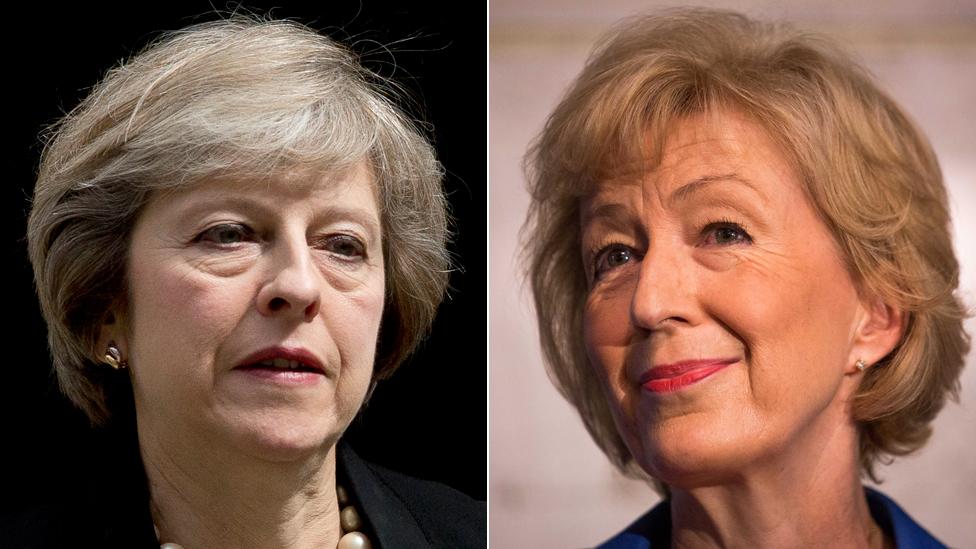Theresa May vows to put Conservatives 'at service' of working people
- Published
Tory leadership candidate Theresa May said there would be no second EU referendum
Theresa May has promised to put workers on the boards of major firms and curb excess corporate pay, as she starts her campaign to be Tory leader and PM.
The home secretary vowed to put the Conservative Party "at the service" of working people.
Mrs May, who campaigned to stay in the EU, also said: "Brexit means Brexit and we're going to make a success of it."
Party members will choose between Mrs May and energy minister Andrea Leadsom in a nationwide leadership vote.
In her speech, Mrs May said of the referendum result: "Brexit means Brexit and we're going to make a success of it," adding that there would be "no attempt to rejoin [the EU] by the back door".
Setting out plans to change the way big businesses are governed, Mrs May said consumers and workers should have places on their boards.
She also committed to making shareholder votes on corporate pay binding, rather than merely advisory, insisting that support for enterprise does not mean "anything goes" in the City.
At the event in Birmingham, Mrs May set out her desire to address inequality and restore trust in politics.
The home secretary acknowledged the criminal justice system treats black people "more harshly" than white counterparts.
She also said politicians often failed to realise how hard life was for working-class families.
'Privileged few'
Outlining her plans to reform corporate governance, she hit out at the way non-executive directors who are supposed to provide oversight of the way firms are run often come from the same "narrow social and professional circles" as the executive team and "the scrutiny they provide is just not good enough".
She said: "So if I'm prime minister, we're going to change that system - and we're going to have not just consumers represented on company boards, but workers as well."
She also promised to strengthen "say on pay" rules, giving shareholders more influence over how much executives are paid.

Andrea Leadsom is Mrs May's opponent in the leadership race
"We're the Conservative Party, and yes, we're the party of enterprise - but that does not mean we should be prepared to accept that 'anything goes'," she said.
The coalition government introduced a law forcing companies to hold legally binding votes on future pay policies every three years, on top of the annual non-binding vote on the packages contained in that year's remuneration report.
Mrs May's plans would involve binding votes on policy and specific pay packages each year.
She set out three key planks to her strategy for No 10: "First, we need a bold, new, positive vision for the future of our country - a vision of a country that works for everyone - not just the privileged few.
"Second, we need to unite our party and our country.
"And third, our country needs strong, proven leadership - to steer us through this time of economic and political uncertainty and to negotiate the best deal for Britain as we leave the European Union and forge a new role for ourselves in the world."
'Not enough'
Outlining some of the social issues she wants to address, Mrs May said: "Right now, if you're born poor, you will die on average nine years earlier than others.
"If you're black, you're treated more harshly by the criminal justice system than if you're white. If you're a white, working-class boy, you're less likely than anybody else to go to university. If you're at a state school, you're less likely to reach the top professions than if you're educated privately.
"If you're a woman, you still earn less than a man. If you suffer from mental health problems, there's too often not enough help to hand. If you're young, you'll find it harder than ever before to own your own home."
She said that "fighting these injustices is not enough", and added: "If you're from a working-class family, life is just much harder than many people in politics realise."
"These are the reasons why, under my leadership, the Conservative Party will put itself - completely, absolutely, unequivocally - at the service of working people," Mrs May said
- Published11 July 2016
- Published11 July 2016
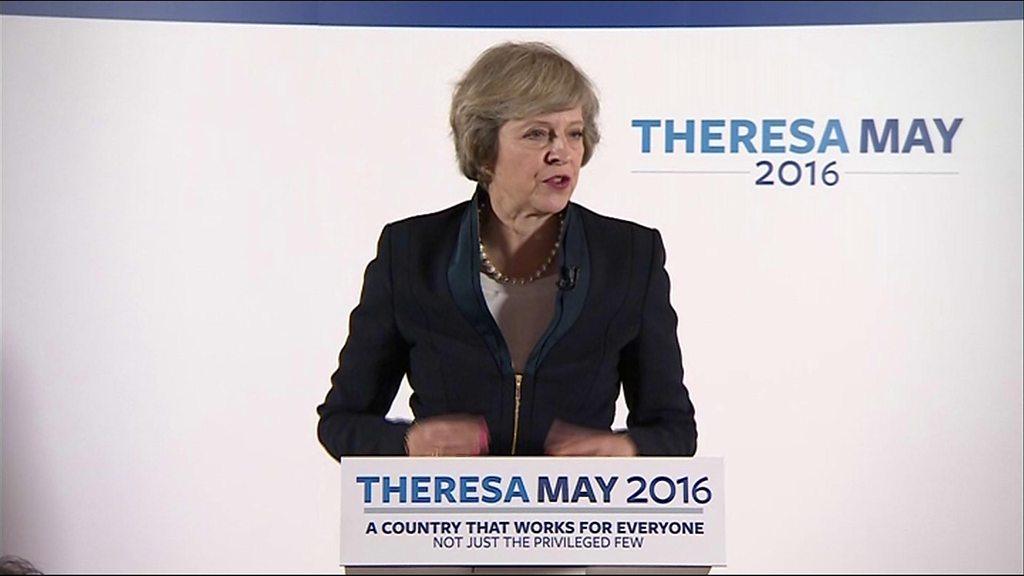
- Published25 July 2016
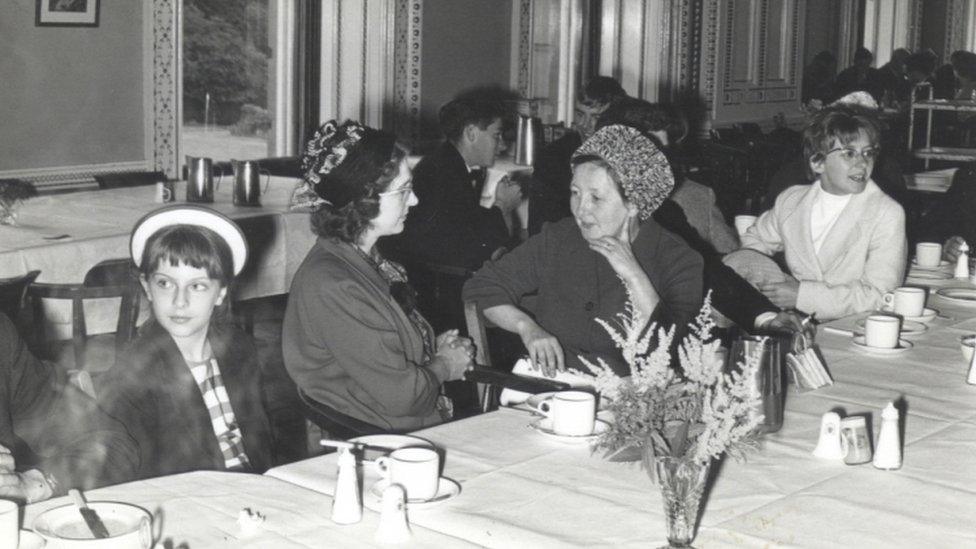
- Published8 July 2016
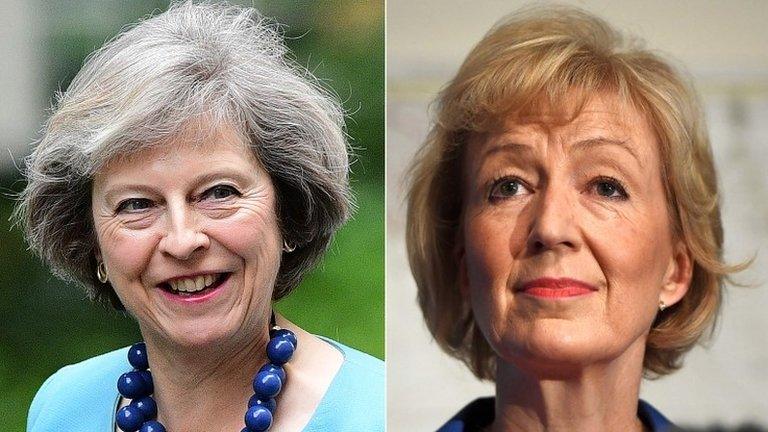
- Published8 July 2016
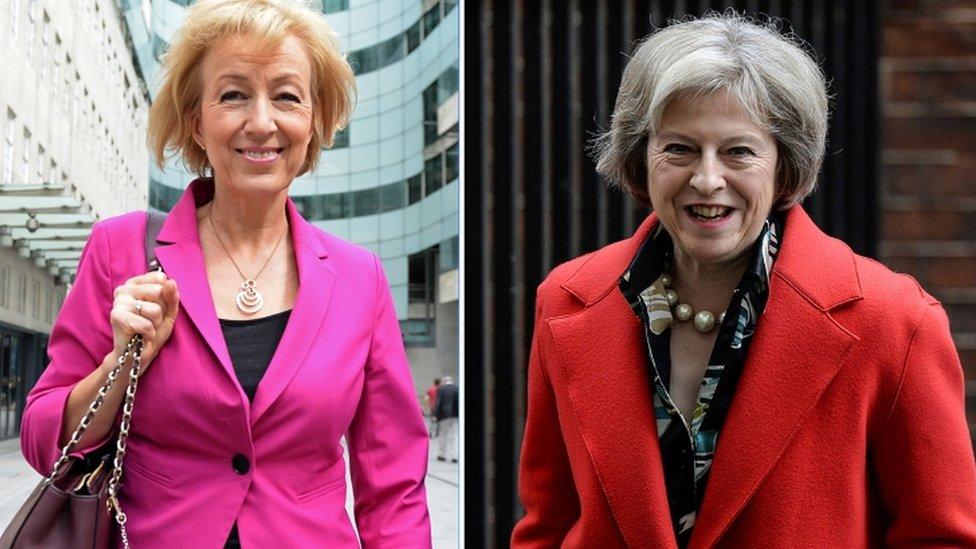
- Published7 July 2016
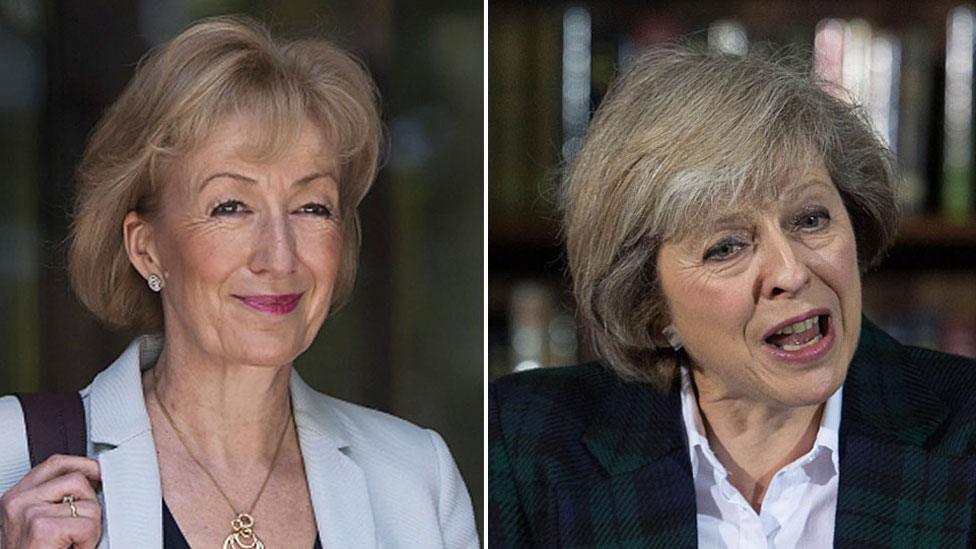
- Published9 July 2016
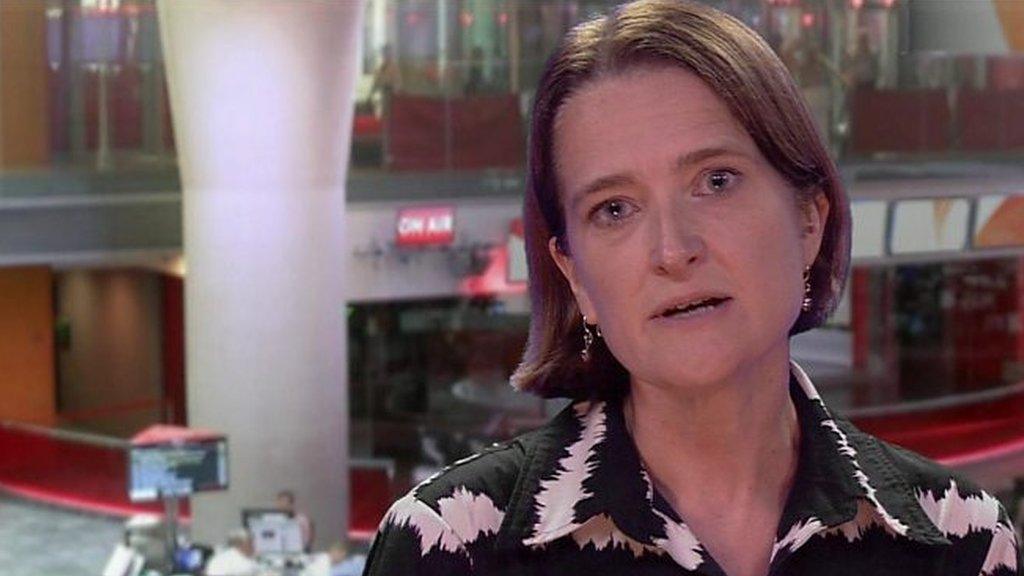
- Published9 July 2016
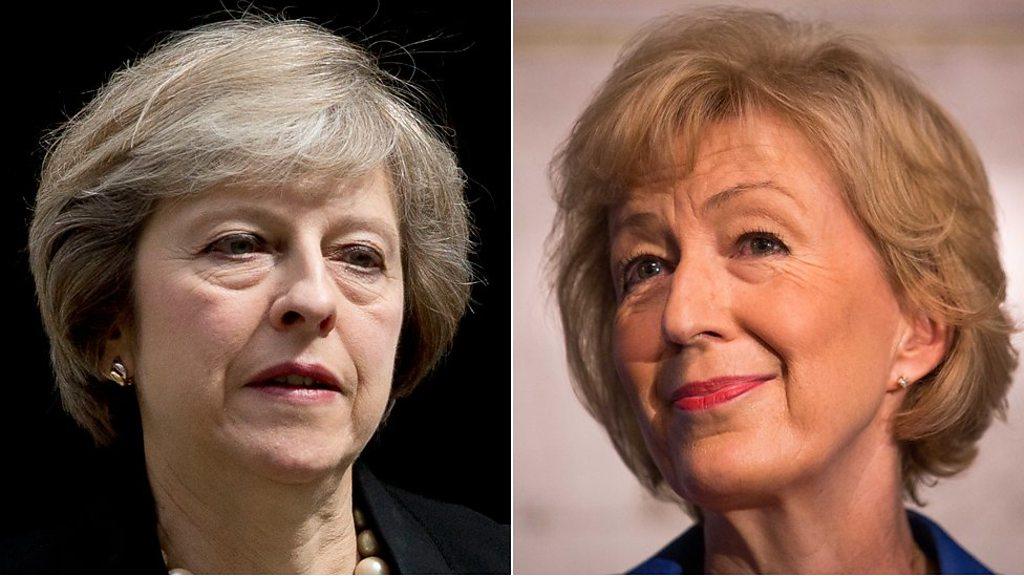
- Published9 July 2016
